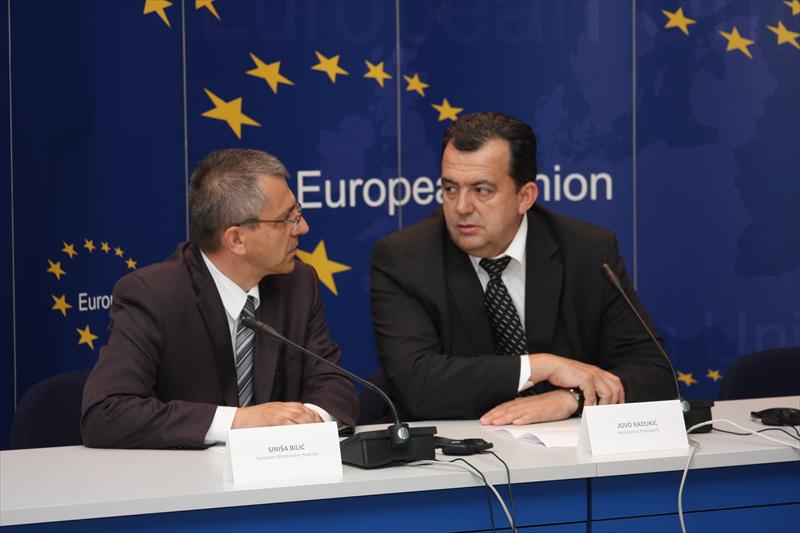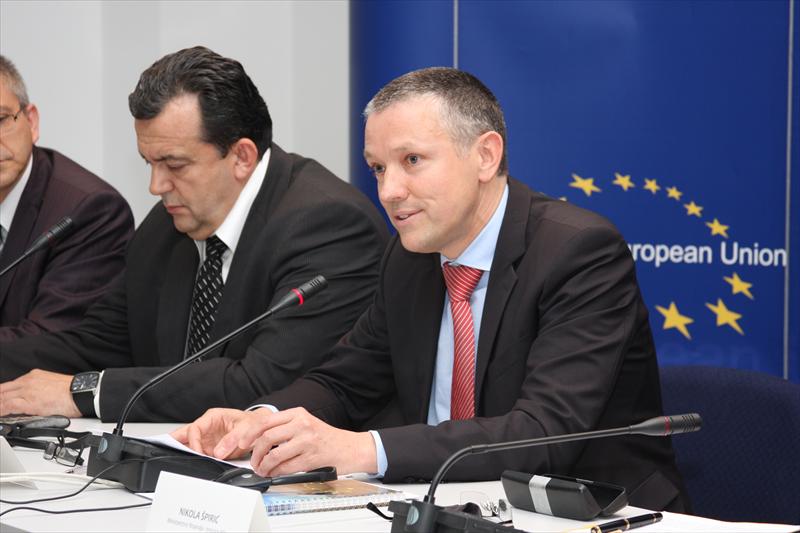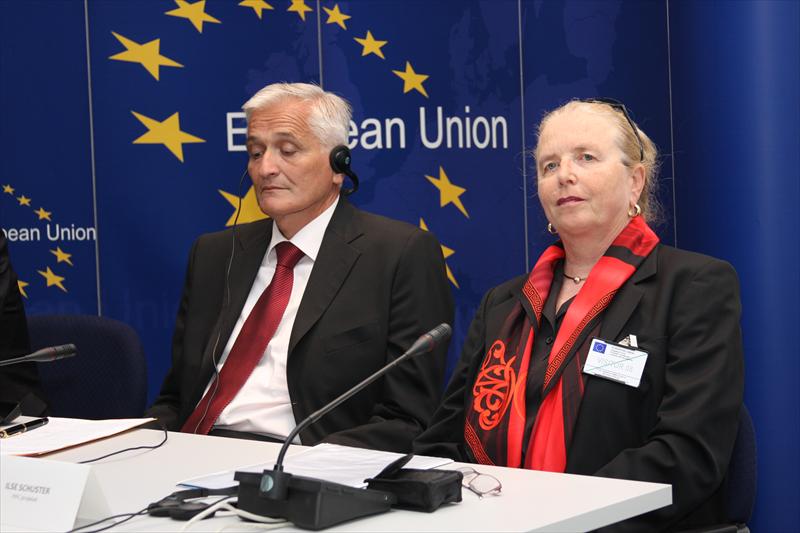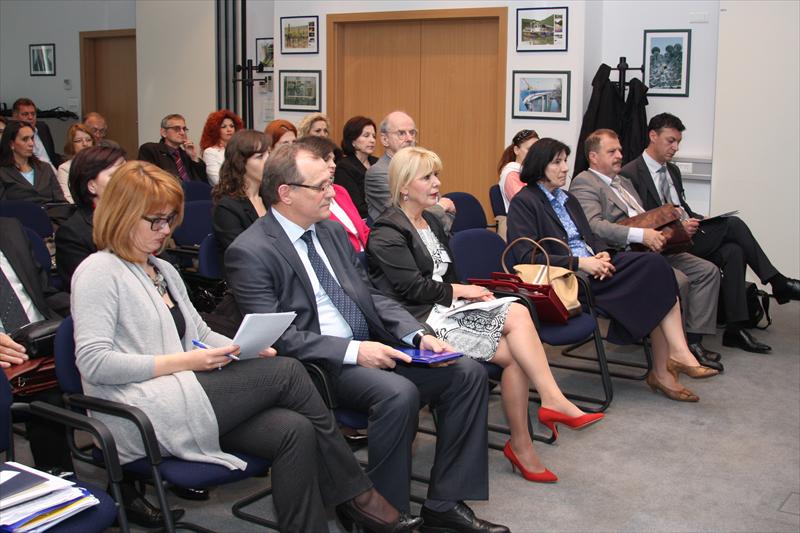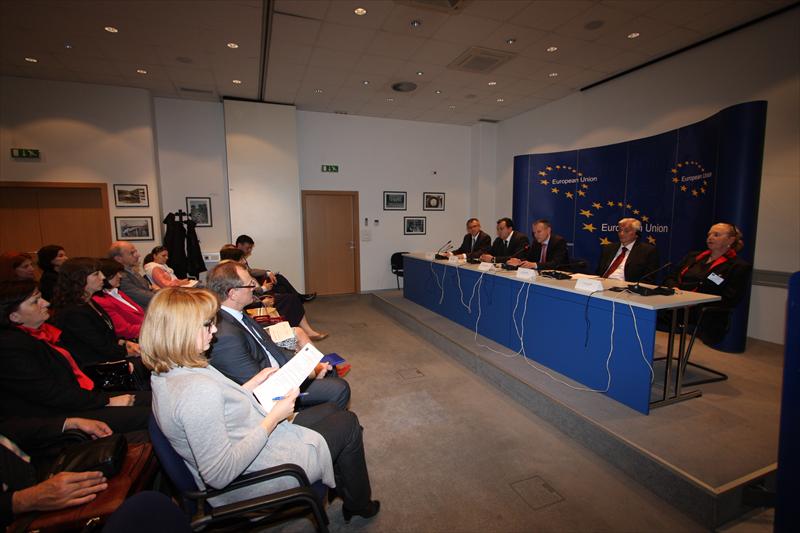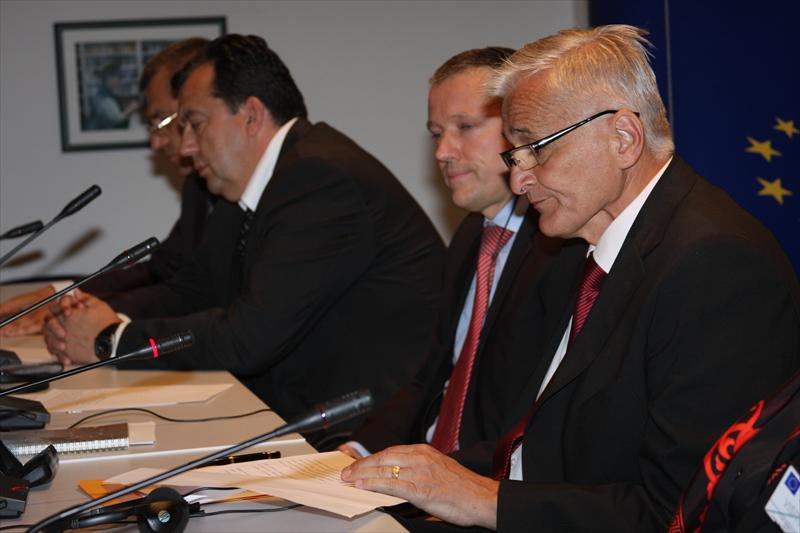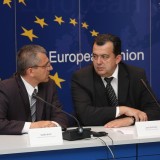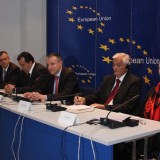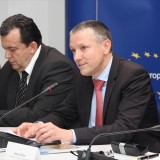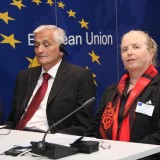Mr. Holger Schroeder, Head of Operations of the EU Delegation to
Mr. Schroeder said that the results achieved in this project strongly support the reform of the public administration in BiH as one of the milestones in the country’s European integration process, and emphasized that further steps must be taken to contribute to the EU efforts in this area, with active engagement and efficient cooperation of all those involved.
The project whose completion was marked at this conference has contributed to reforming and streamlining the public administration of the country in order to increase transparency and efficiency in the spending of public funds. Since May 2010 the project has produced noteworthy results and laid the foundations for further reforms of the system, including assistance provided for drafting legislation and capacity building in Internal Audit and Financial Management and Control, as well as training provided for 220 civil servants from all levels of government.
“Public Internal Financial Control helps to prevent misuse of public funds through abuse of power or position. Its underlying principles are good governance, transparency, and accountability. Public Internal Financial Control aims at ensuring that taxpayers are getting value for money, something that is particularly important in times of financial crises when public funds are scarce!” said Mr. Schroeder.
Cooperation with the EU in this field is a contractual commitment from the Stabilisation and Association Agreement between the EU and Bosnia and Herzegovina. It foresees the introduction of PIFC, as a tool that ensures sound financial management and control at BiH State level, entity and lower levels of authority. This includes in particular the development of internal financial control in public sector, including financial management and supervision, functionally independent internal audit and independent systems of external audit and adoption of appropriate legislation.
“In spite of several challenges that remain to be addressed, the project team expects a high degree of sustainability of the results achieved, since cooperation of the beneficiaries was outstanding and motivation for the reform process was extremely high”, said Project Team Leader Ilse Schuster, pointing out that “Implementing EU best practice in financial management is a cornerstone for future economic growth“.
EU funded this project in the amount of 1,117.080 Euro from the Instrument for Pre-accession Assistance (IPA).The project was implemented by a consortium led by the PKF Accountants & business advisers from UK.
KEY FACTS ABOUT PUBLIC INTERNAL FINANCIAL CONTROL
What does Public Internal Financial Control mean?
Public Internal Financial Control (PIFC) is the framework established by the European Commission aimed at achieving sound financial management of public resources and EU funds. PIFC includes internal audit as well as financial management and control in line with international standards and EU good practices.
What should PIFC deliver?
PIFC comprises all measures to control all government revenue, expenditure, assets and liabilities. It represents the wide sense of internal control. PIFC is about improving accountability and about spending public money better. There is an increasing interest of tax-payers seeking re-assurance that their money is spent well and that the risks of fraud and corruption in the public sector are minimised. Managers in public office are held to be transparent in their financial decision-making and accountable for spending public funds efficiently.
EU Accession requirement
The sound and efficient management of public funds is an important condition for joining the European Union.
European Commission support reforms
The European Commission fully supports the ongoing reforms in Bosnia and Herzegovina to improve sound financial management and the better delivery of services for citizens and businesses. To that end, the European Commission provides funding for expert assistance to help implementing PIFC.


